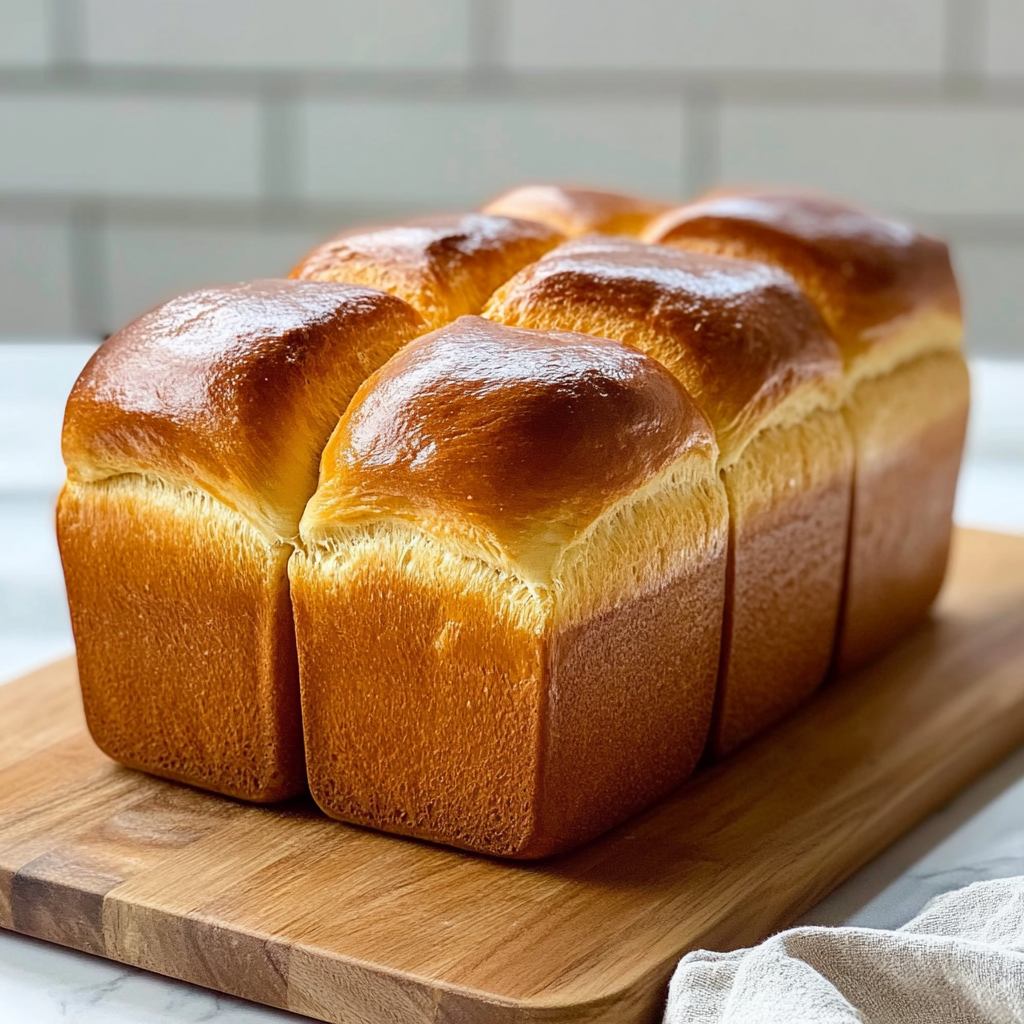
Sourdough Brioche Bread
This rich and airy sourdough brioche delivers an irresistible balance of buttery softness and tangy flavor. Developed through a combination of time-honored techniques and patient fermentation, this bread is ideal for celebratory mornings or luxurious afternoon indulgences.
Pin it to remember it!
Ingredients
Levain
- 30 g warm water
- 30 g bread flour
- 30 g sourdough starter
Yudane
- 58 g boiling water
- 58 g bread flour
Dough
- 5 g sea salt
- 59 g whole milk room temperature
- 2 eggs
- 113 g unsalted butter softened
- 27 g granulated sugar
- 212 g bread flour
- Levain prepared as above or substitute 90g of active sourdough starter
- Yudane prepared as above
Egg Wash
- 1 tsp water
- 1 egg
Instructions
- Prepare the levain by combining sourdough starter, bread flour, and warm water in a sanitized jar. Seal and place in a warm area for approximately five hours until bubbly and expanded. Alternatively, use 90 grams of an active sourdough starter directly in the dough.
- Simultaneously, create the yudane. In a small heatproof bowl, mix the bread flour with boiling water. Stir vigorously until a gelatinous paste forms. Allow to cool completely before use.
- When the levain has matured, assemble the dough. In a stand mixer fitted with a dough hook, combine all dough components except butter. Begin mixing at a low speed until a rough mass forms. Increase to medium speed and knead for roughly five minutes until the dough becomes more cohesive and detaches from the bowl's edges.
- Gradually incorporate the butter, adding one piece at a time while mixing on medium speed. Wait at least a minute or two between additions, ensuring each piece is fully blended. Continue mixing for an additional five minutes post incorporation until the dough is smooth, elastic, and passes the windowpane test.
- Transfer dough to a clean bowl, shape into a round, cover, and let it ferment for about five hours at 78°F. After one hour, perform a set of stretch and folds. Repeat after the second hour if needed to build strength.
- Refrigerate the dough for a slow fermentation overnight, lasting a minimum of eight and up to 48 hours.
- Next day, grease a loaf pan. Punch down the chilled dough, transfer to a lightly floured surface, and divide into four equal portions (approximately 170–175g each). Flatten each into a rectangle, roll tightly from the short end, and place seam-side down in the pan.
- Allow the shaped dough to proof a final time in a warm spot for about five hours at 78°F. The dough should double in size and respond to a gentle poke with a slight indentation.
- Preheat oven to 400°F. Prepare an egg wash by beating an egg with water and brush it lightly over the risen dough. Insert the loaf into the oven, then immediately reduce the temperature to 350°F. Bake for 45 minutes, or until the top is golden and the internal temperature reads between 195°F and 205°F.
- Let the bread rest in the pan for five minutes post-baking, then remove and cool completely on a wire rack for at least an hour before slicing or pulling apart.
Notes
Maintain dough temperature between 75–80°F during fermentation to support optimal sourdough activity. Cooler environments will slow proofing; warmer ones will accelerate it.